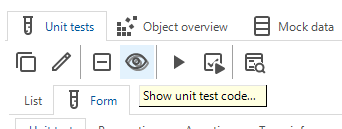Hi,
We are in the process of implementing unit testing in our application, and I wanted to create a unit test where I check a value of a certain column.
We have a table where we store different posts on an individual invoice, with an amount. The sum of the amounts of the different posts are calculated into the actual_amount column. This is done with a trigger. In the unit test, the triggers are disabled on the table, so we cannot assert the actual_amount column to have the correct amount. We are using mock data by the way.
How can we create a test for this? Is this even something that we have to do in the unit test section, since it seems to be more of an integration test if you ask me?






